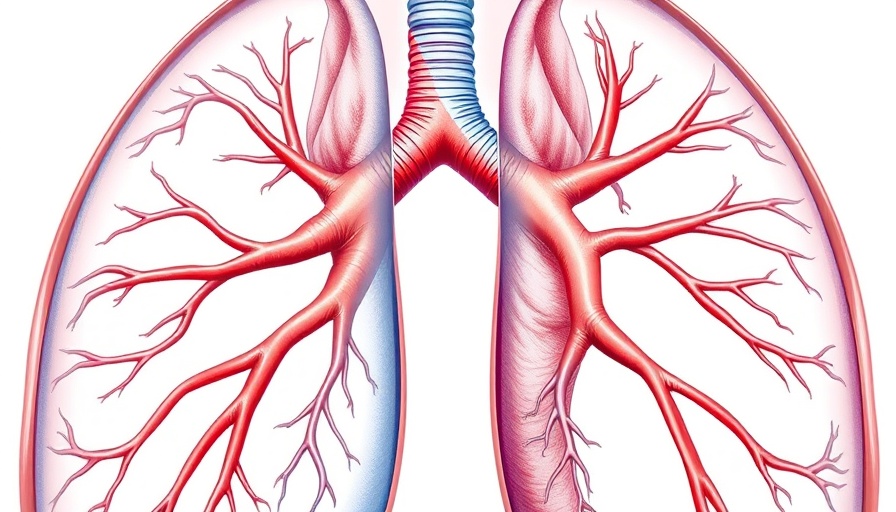
Innovative Breakthrough in Lung Cancer Detection
The healthcare landscape continues to evolve, and the recent breakthrough from the University of St Andrews School of Medicine offers a revolutionary angle for lung cancer detection. In a landmark study involving 12,000 smokers and former smokers, researchers discovered that biomarker testing can significantly cut lung cancer mortality by a remarkable 40%. It's a step forward in personalized medicine, as this non-invasive technique analyzes proteins and other substances in the blood that may signal lung cancer long before symptoms arise.
The Power of Early Detection
Lung cancer is notorious for being detected at advanced stages, which makes effective treatment challenging. The study, led by a consortium of experts from the NHS, and the Universities of Dundee, Glasgow, Aberdeen, and Nottingham, highlights the life-saving potential of early detection. Biomarkers, also known through terms like 'liquid biopsy,' identify high-risk individuals, allowing for earlier and more effective interventions. This approach aligns with promising trends in healthcare, focusing resources on those who need them most, while potentially saving countless lives.
Historical Context and Background
The idea of using biomarkers in medicine isn’t new. Historically, they have been pivotal in diagnosing various conditions, especially when traditional methods fall short. In oncology, their role has accelerated with advancements in technology, making biomarker testing more precise and widely applicable. This progression is crucial in dealing with cancers such as lung cancer, where the need for early diagnosis is paramount. Professor Frank Sullivan and his team’s research embodies a significant achievement in this evolving medical field.
Future Predictions and Trends
Looking ahead, the integration of biomarker testing into standard lung cancer screening protocols could transform the landscape of cancer care. With these tests becoming more accessible, we can anticipate a rise in early diagnoses not only for lung cancer but potentially for other cancers as well. As healthcare focuses on precision medicine, the development and application of such non-invasive technology suggest a future where life-threatening diseases could be caught early, improving prognosis and treatment outcomes considerably.
Relevance to Current Events
This discovery couldn't be more timely. As global health challenges mount and the demand for effective cancer treatments rises, biomarker testing presents a beacon of hope. The COVID-19 pandemic has already seen healthcare systems globally adapting and integrating digital solutions swiftly. This lean towards technological innovation could expedite the adoption of similar breakthroughs in routine practice, with biomarker testing setting a precedent for preventative care.
 Add Row
Add Row  Add
Add 






Write A Comment